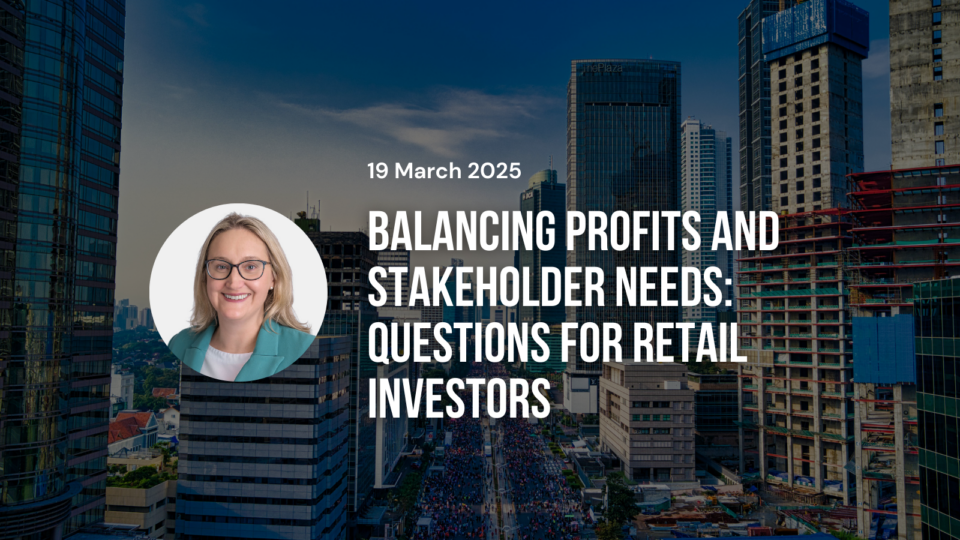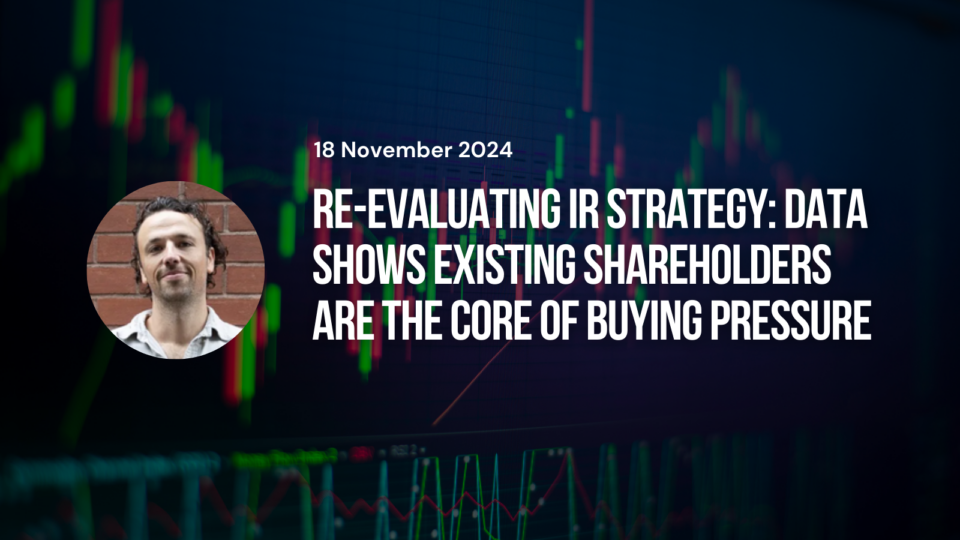

As Chair of ASA and also as a Company Monitor, I am often fortunate to meet with the Boards and Management teams of large ASX-listed companies. It provides a rare insight at times into the culture and leadership thinking of these businesses.
Whilst I currently fill this important, volunteer position at ASA, like all of you I am also a regular member and investor who is trying to get a good return for all the time and effort I put into my investing. It’s the source of most of my family’s income these days and again like all of you, I don’t want to mess it up!
In addition to all the great education and advocacy support I get from ASA, I am also an avid reader of the books and thoughts of many of the world’s great investors, like Howard Marks, Joel Greenblatt and Annie Duke. Closer to home, I am also a follower of Mike Kemp and Chris Leithner, who are now sharing their wisdom with members as ASA Education Partners.
Like many members, I also have huge respect for arguably the world’s best investors, Warren Buffett and the late, great Charlie Munger. They have sustained incredible results for decades and invest using principles that individual investors can adopt for the most part, if that suits your goals and personality.
Companies in the News for the Wrong Reasons
As I write this, we have the latest in what seems like a steady flow of allegations, controversies and failures at some of our largest and most well-known companies. We have had the damaging cyber attacks at Medibank Private, and the service and reputational failures at Qantas. In addition there is now an ASIC investigation into tax evasion allegations affecting Mineral Resources and personal issues and alleged governance failings affecting Wisetech Global. All of these examples resulted in significant drops in the market caps of these companies at least in the short term, and in all likelihood damage to other stakeholders and the overall reputations of these businesses.
Wisdom from Warren and Charlie
So how should we, as individual investors respond to these kinds of issues? I believe Warren and Charlie have some simple philosophies that are instructive –
At the 1989 Berkshire Hathaway AGM Buffet said – “I think you judge management by two yardsticks. One is how well they run the business, and I think you can learn a lot about that by reading about both what they’ve accomplished and what their competitors have accomplished, and seeing how they have allocated capital over time. Look at what they have accomplished, considering what the hand was that they were dealt when they took over, compared to what is going on in the industry.”
And the second yardstick he cited was –
“You also want to figure out how well they treat their owners. Read the proxy statements (Annual Reports and Notices of Meetings), see what they think of — see how they treat themselves versus how they treat the shareholders. … The poor Managers also turn out to be the ones that really don’t think that much about the shareholders, too. The two often go hand in hand.”
Charlie Munger also shared this in relation to how Berkshire assessed whether they should invest in a business or not – “After some other mistakes, I learned to go into business only with people whom I like, trust, and admire.” Later, he added, “We’ve never succeeded in making a good deal with a bad person.”
A Quality Question to Ask
From these lessons I apply this test before I personally invest in or possibly continue to hold a stock –
Based on what is reliably reported and currently known, “Do I trust management?”
If you can’t answer yes to this question, do you really want to have your hard earned money invested in the business? I know I certainly don’t and with thousands of other businesses to invest in, it’s a simple case of not requiring that kind of risk to exist in my portfolio.
This doesn’t mean they mightn’t overcome it and go on to be good performers for shareholders but inverting that possible outcome, it’s such a simple filter to minimise possible losses.
These are judgement calls of course and each investor needs to come to their own conclusions. To begin, do you care about this and is it important to your investing style and plan (if you’re a day trader for example, probably not).
If it is important, then in my view you need to try and make a rational and unbiased decision about whether you trust or can continue to trust the current Board and Management of the business. This can be difficult when we already own shares in the business and in turn look on it favourably. So, one helpful way to frame your thinking could be to ask yourself if you didn’t own shares already, would you be buying them today based on what you know and your answer to the trust question.
Potential Actions
There are a few ways you can assess the trustworthiness of management and their alignment with all stakeholders such as –
- Looking at their remuneration Do they only award management incentives when they achieve the numbers or do they use discretion or adjust them after the fact. And do the metrics also consider staff and customer outcomes or just profits?
- Do they measure staff engagement (how committed their team is) and report that to shareholders?
- Do they measure customer satisfaction and report that to shareholders (High Net Promoter Scores (NPS) usually lead to good business outcomes)?
- Do they only make commitments or forecasts that seem deliverable and do what they say they are going to do?
- Do they humbly and quickly acknowledge mistakes with a plan to improve next time around (Buffett starts every Berkshire AGM with problems and mistakes)?
- You can check these things by reading the Annual Report / Notice of Meeting or by asking the questions at the AGM.
As always, ASA and our monitors will continue to meet with as many companies as we can and report on their general governance and shareholder meetings. If you don’t already read these reports, perhaps you should?
Finally, if you would like to join the monitoring team and gain some extra insights whilst advocating for your fellow shareholders then please get in touch.





